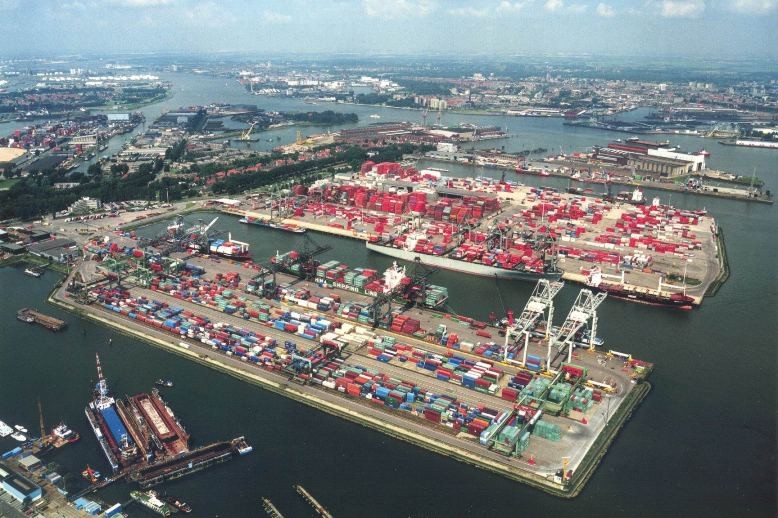The Port of Rotterdam closed the first three quarters of this year with a slight increase of one percent in cargo handling. At the end of the nine-month period, the port saw a total throughput of 353.5 million tons, compared to 350 million tons recorded in the corresponding period a year earlier.
The growth in volume at Europe’s largest seaport was driven mainly by containers, crude oil, LNG and biomass. On the other hand, there was a reduction in the transhipment of coal and mineral oil products.
“In the third quarter, we again saw healthy growth in terms of containers, one of the Port Authority’s strategic spearheads,” said the CEO of the Port of Rotterdam, Allard Castelein.
According to the port authority, the transshipment of containers was 3.3 percent higher in terms of tons in the first three quarters of the yea. Tthe growth mainly took place during the first half of 2019 when the port set a new throughput record.
In TEU numbers, the port’s container throughput rose by 3.8 percent to 11.2 billion from 10.8 billion seen in the first nine months of 2018.
Other breakbulk cargo grew by 4.4 percent year-over-year by the end of September 30, 2019. Specifically, RoRo volumes were influenced by Brexit, with a lot of additional stocks piled up during the first quarter. Following the postponement of Brexit to October 31, volumes then decreased from April to August. Growth was again experienced in September and it is expected to continue to pick up in the run-up to the Brexit date.
“What is worrying, however, is that the relationship between the world’s major trading blocs remains strained, as does the continuing uncertainty about the introduction of trade tariffs after Brexit,” Castelein added.
With regards to dry bulk volumes, a total of 55.9 million tons was transhipped up to the end of the third quarter, representing a drop of 1.4 percent when compared to 56.7 tons handled in the first nine months of 2018.
Additionally, total liquid bulk cargo stood at 159.5 million tons in the first three quarters of 2019, almost equal to last year’s volume of 159.4 million.
